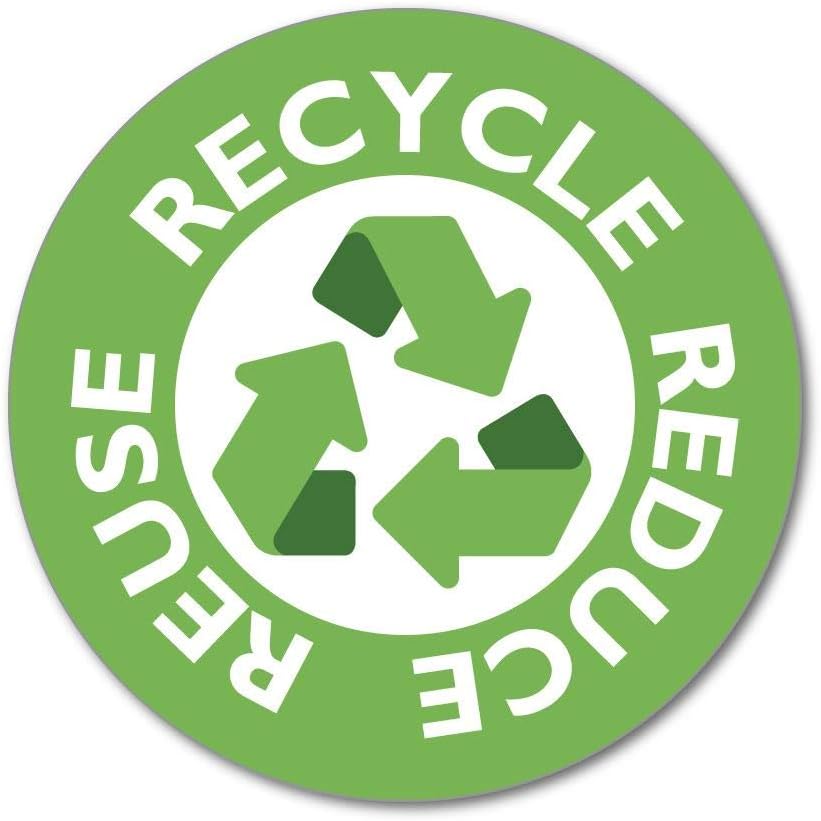Do you ever wonder what happens when you throw a plastic bottle in the recycling bin in Walton, or when you bring paper to the recycling room in your dorm building? Does it really get recycled? Does it actually matter if you put it in the recycling bin or the trash can right next to it? A closer look at the Eastern recycling program reveals a local family-owned waste contractor might do more recycling than one would think.
There are three recycling dumpsters, located near Walton, Eagle and the gym. The custodial (CSi) staff also empties the recycling cans located around campus into these dumpsters, as well as the recycling from the recycling rooms in the dorm buildings. All this recycling is single stream, meaning individuals are not tasked with sorting the different kinds of recyclable materials out themselves. Everything – paper, aluminum, plastics, metals, etc. – can go in the same bin. This recycling is then picked up weekly and sorted by the same contractor that handles all waste at Eastern, J.P. Mascaro & Sons.
According to Steven Hartner, the executive director of plant operations, this contractor was chosen about five years ago – and their recycling efficacy was a consideration in that decision. “They certainly are the best [recyclers]. They’re still a family-owned business. They’re still regional compared to waste management and whatnot. And they still felt like they provided the best service when it came to efficacy of recycling,” Hartner said.
Eastern is not involved much in the recycling process, but trusts Mascaro to handle their end of the bargain well. “As far as trusting a contractor and their abilities to follow through with recycling, I would trust Mascaro more than anybody, mainly because no one knows where it goes, especially if it’s a municipality compared to a contractor. Contractors are required, whereas if it’s a municipality… Who knows? You know, China’s not buying our recycling anymore. So who knows where it goes?” Hartner said.
A representative for J.P. Mascaro, Jeff Rotunno, explained where it does go once the contractor picks up the recycling from Eastern. It goes to a state-of-the-art recycling plant owned by Mascaro called Total Recycle that opened in 2018. Workers then sort the material by taking out the contaminated waste and the recycling the rest. “The way single stream recycling is designed, [is] to basically capture more material within an acceptable amount of threshold. So back before single stream recycling was a thing, people used to kind of look at the trash and recycling bin and say, is this recyclable? Is it not recyclable? And then they would err on the side of putting it in the trash,” Rotunno said.
“With single stream recycling, the whole point of that is to basically say, ‘okay, well, even if you’re questionable on whether or not this material is recyclable, put it in the recycling bin.’ And then throughout the process, it’s either going to be deemed recyclable [or contaminated],” Rotunno said. Shockingly, Mascaro reportedly has a “residual rate” (meaning the amount of waste that can’t be recycled) is 9%. “It’s actually one of the best in the entire country,” Rotunno said.
Simply put, when you are hesitating in Walton wondering if the plastic cup from Zime is truly recyclable, Rotunno says err on the side of recyclable. If it is not, workers can always sort it out for you, which is the beauty of single stream.
Part of the reason Mascaro has such a low residual rate is because their facility can recycle many more materials than one would guess. “We can process one through seven plastics, office paper, newspaper, magazines, aluminum cans like soap, corrugated cardboard, a lot of your traditional material. And then what makes that plant extremely unique is it has additional sorting capabilities to process something called flexible packaging…kind of like the bubble wrap around your Amazon packages… You can recycle those. You can recycle clear plastic bags. You could recycle Dorito bags,” Rotunno said.
According to a Mascaro flyer, the plant can also recycle bread bags, plastic case wrap, drink pouches, meat and cheese bags and more. Additionally, as opposed to other recycling plants, not all recycled material needs to be washed. Rotunno says it helps, but the material undergoes a cleaning process regardless. This means if you have a doritos bag full of cheesy dust, you can still toss it in the recycling bin and Total Recycle will be able to handle it.
In the wake of the recycling industry’s market collapse in 2018 due to China halting the purchase of American recycling, less contractors recycle than ever. Rotunno says many do not have the incentives they used to, and stopped the process entirely. But as for Mascaro, they have kept their recycling capabilities high. “We’re family-owned and operated company and we want to do the right thing. We want to make sure that we’re handling everything properly. And if we’re able to reduce, reuse and recycle, that’s always our first couple of steps that we try to take before any material ends up in our landfills,” Rotunno said.
The recycling capabilities at Eastern are high. The burden now is on students, faculty and staff to take recycling seriously. Remember: when in doubt, recycle.

